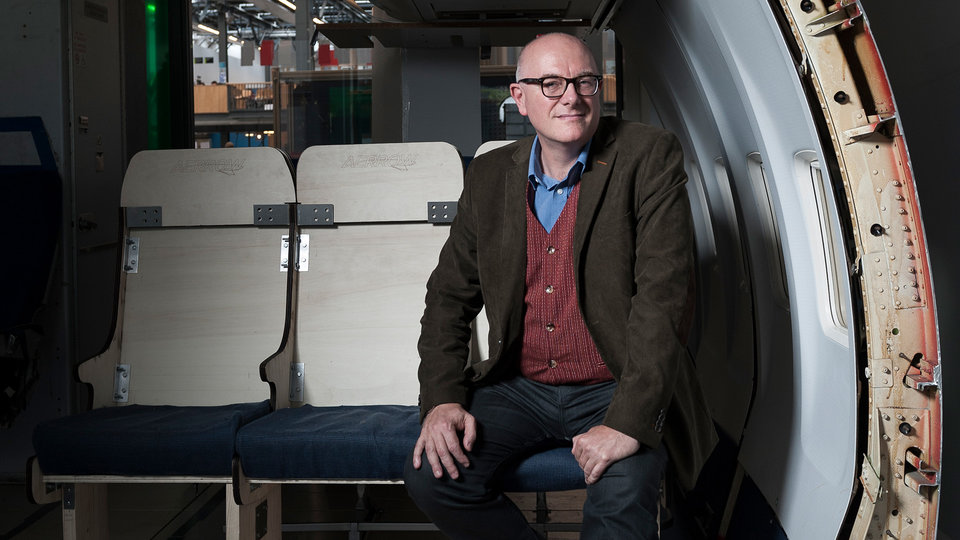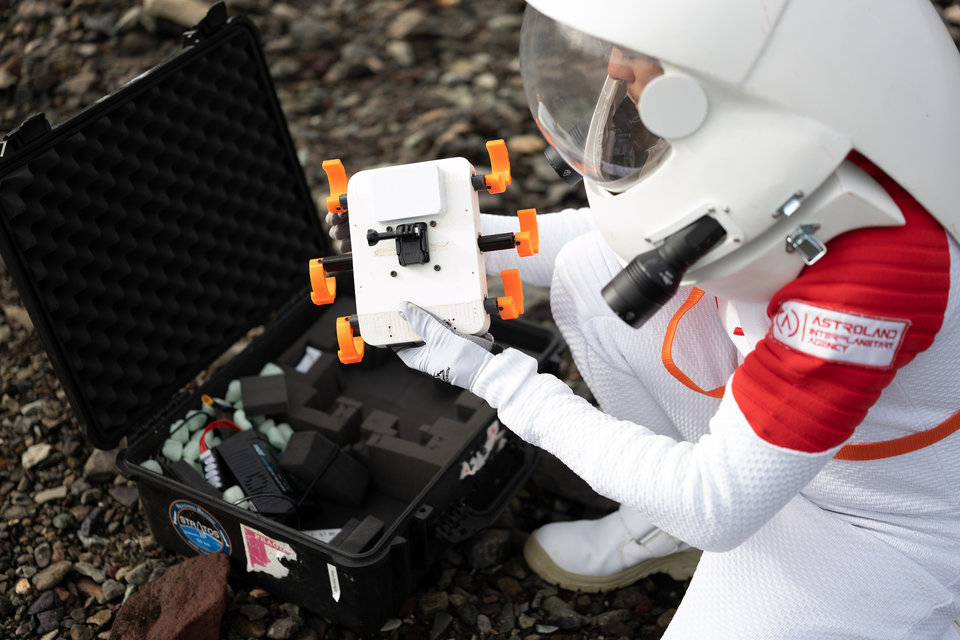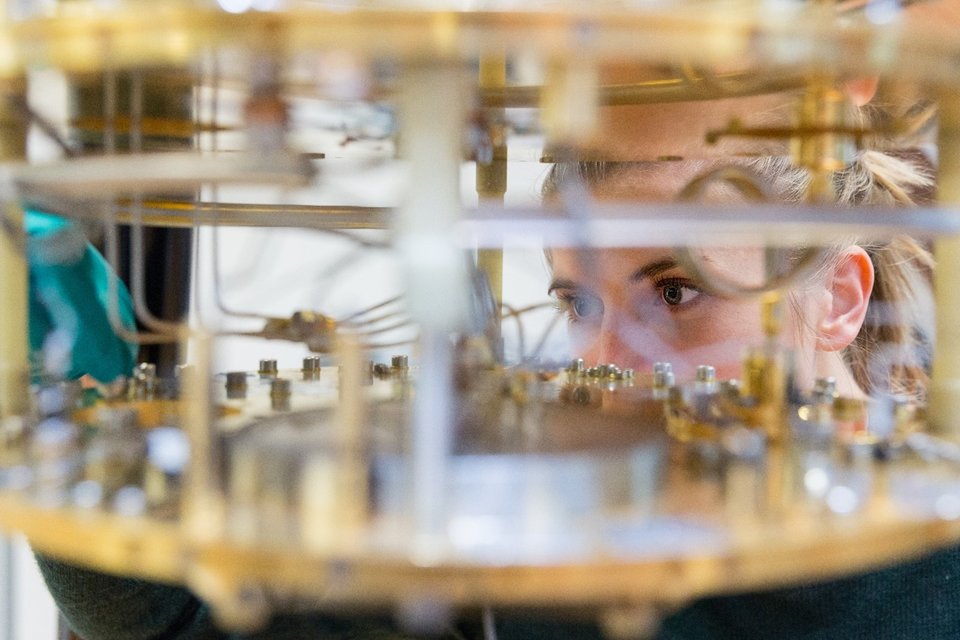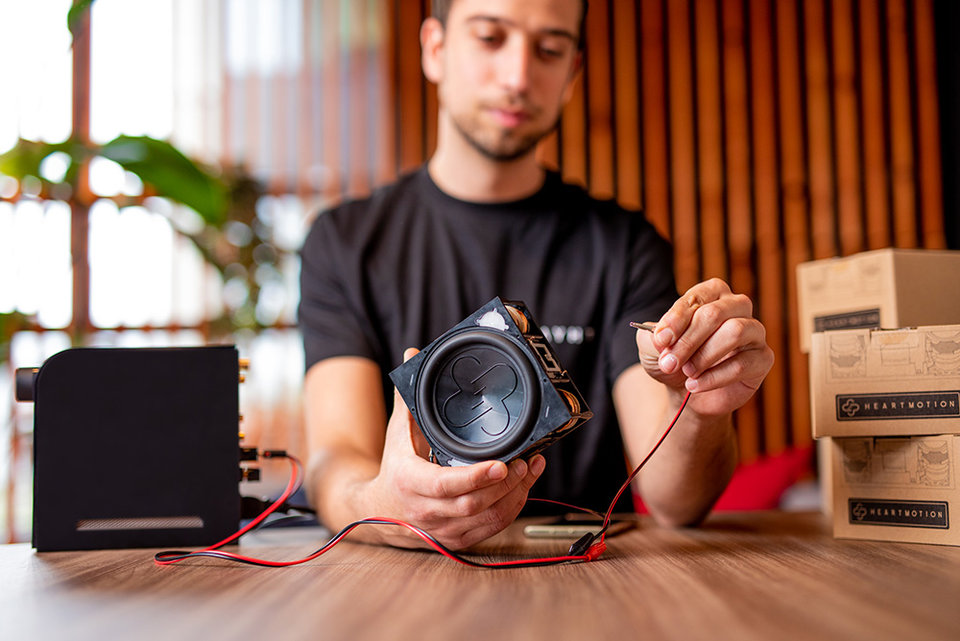How to innovate in a new market?
In 2006, Crijn Bouman founded the fast charger startup Epyon, which was acquired by the multinational ABB in 2011. But there’s no stopping a born entrepreneur, so Bouman subsequently started Rocsys in 2019 to develop a robot that automatically plugs in electric vehicles using computer vision and AI. Below are eight words of wisdom from a serial entrepreneur.
By Bruno van Wayenburg • Photos Erno Wientjes • November 5, 2024

1. Start simple, it will get complicated later
“In my final year at university, I decided to develop a hydrogen moped. The first issue I encountered was safety: nobody wants hydrogen gas cylinders in their home. Hydrogen is also particularly prone to leaking, so storage and transport would also be a problem. Finally, fuel cells are incapable of delivering high peak power and would therefore have to be paired with a battery. At some point, I realised that projects tend to get more complex as they progress, and this has been the case in all my other development projects. So start simple.”
2. Find the falling cost curve
“We use computer vision, AI and soft robotics. These three technologies are getting progressively cheaper, so we’ll be able to upgrade charging infrastructure cheaply and easily by the time autonomous driving has become widespread 10 years from now.”
3. Blathering sceptics are a good sign
“I know I’m in the right zone when I run into sceptics wherever I go. When we launched Epyon, we heard a lot of people say: ’Electric cars? I’ve never seen one in my life.’ Talking about fast chargers, a man working for a major grid operator told me that they would cause province-wide blackouts, which is utter nonsense. Everyone was telling tall tales and the same now applies to autonomous mobility. So I feel like I'm back in the zone all over again.”
A team of five innovators will come up with a brilliant new idea every day but they’ll get nothing done. You have to surround yourself with people who are different from yourself.
4. The best experience is no experience
“Our customers either operate a fleet or spend their days transporting goods or people. Charging vehicles are the last thing they have on their minds, which is why we want to make it an invisible link in the chain, a fully automated process in which vehicles drive to the charging station, get plugged in and are charged without anyone having to worry about it.”
5. Find people who aren’t like you
“When you first launch a start-up, you need innovators. People like me who are itching to do something new. As the technology evolves, however, you’ll need people with other skill sets, such as perfecting the technology you’ve developed. A team of five innovators will come up with a brilliant new idea every day but they’ll get nothing done. You have to surround yourself with people who are different from yourself.”
6. Corporates are heaven and hell
“Multinationals like ABB, which acquired Epyon, excel at incremental innovation. Taking a crystallised concept with a clear-cut market and tweaking it bit by bit is their bread and butter. But they’re much less skilled at concocting new solutions for novel markets, so my advice to corporates looking to innovate is to set up a separate unit and forget about it turning a profit for the first five years. It’s very difficult but we got it right with ABB. However, having a corporate behind you really pays off when it comes to scaling up, rolling out a global service network or running promotional campaigns abroad.”
7. Solve a mystery
“One of Epyon’s San Francisco-based customers had bought a raft of chargers but was rather secretive about how they were going to use them, so I just decided to drop by during a trip to San Francisco. I found them in a large warehouse, a test track for autonomous vehicles, and sitting in the corner was a man whose sole task was to plug in cars returning from their trip. I jokingly told them they should automate this job too, and that ended up being one of the insights that sparked the idea for Rocsys.”
8. We’re missing the boat. Again.
“I was in San Francisco last September and took around six self-driving taxis during my time there. It’s like stepping into the future. You download the app and order a car, and it takes you to your destination without a single incident. The market is full of US, Korean and Chinese companies but there are zero European players at this level. Once again, we’re falling behind.”
Interested in collaboration?
Interested in business collaboration or seeking knowledge and insights on your policy themes?
Contact us

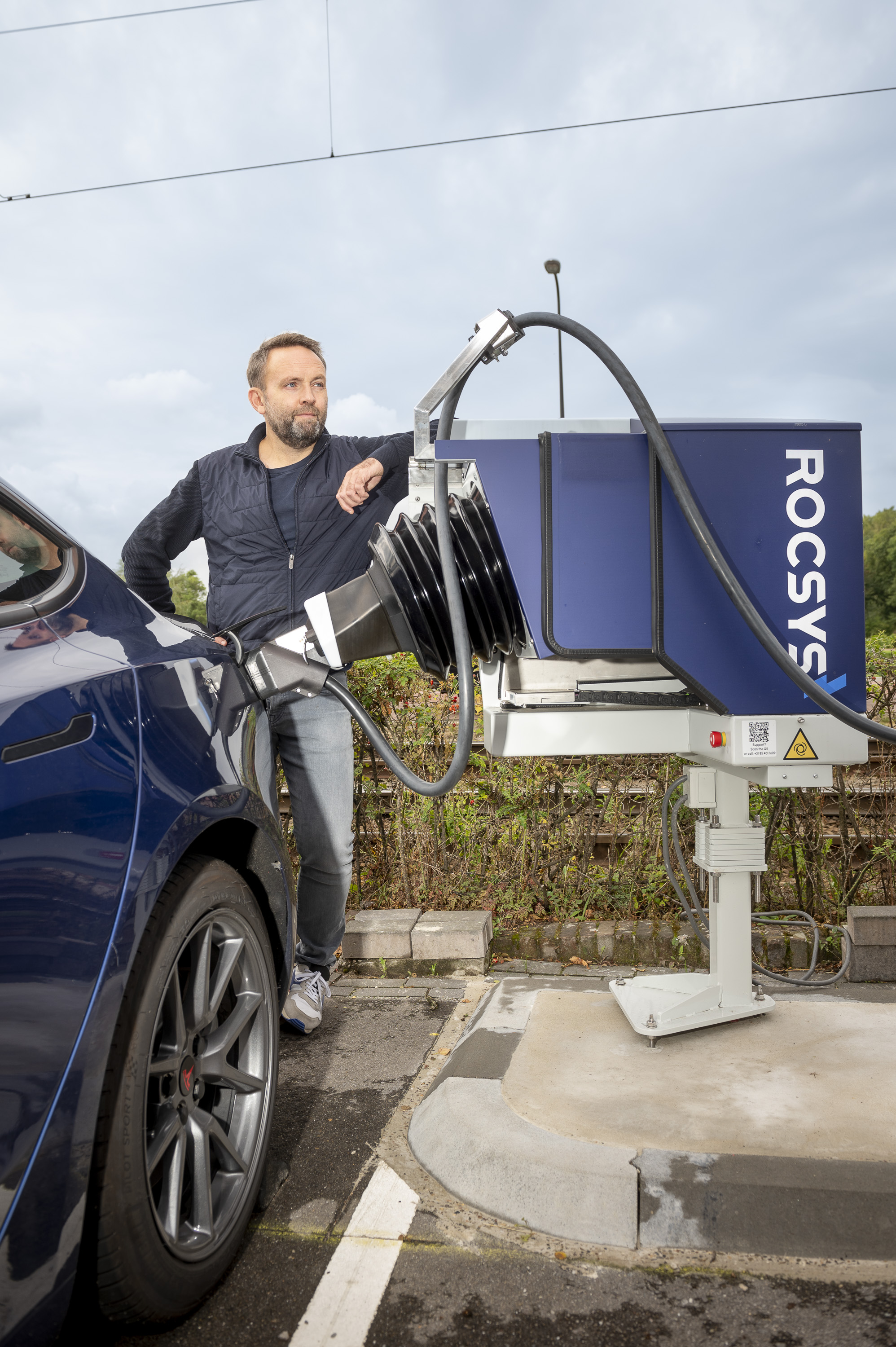


![[Translate to English:] [Translate to English:]](https://filelist.tudelft.nl/_processed_/4/2/csm_Respyre%202_85484b7045.jpeg)

